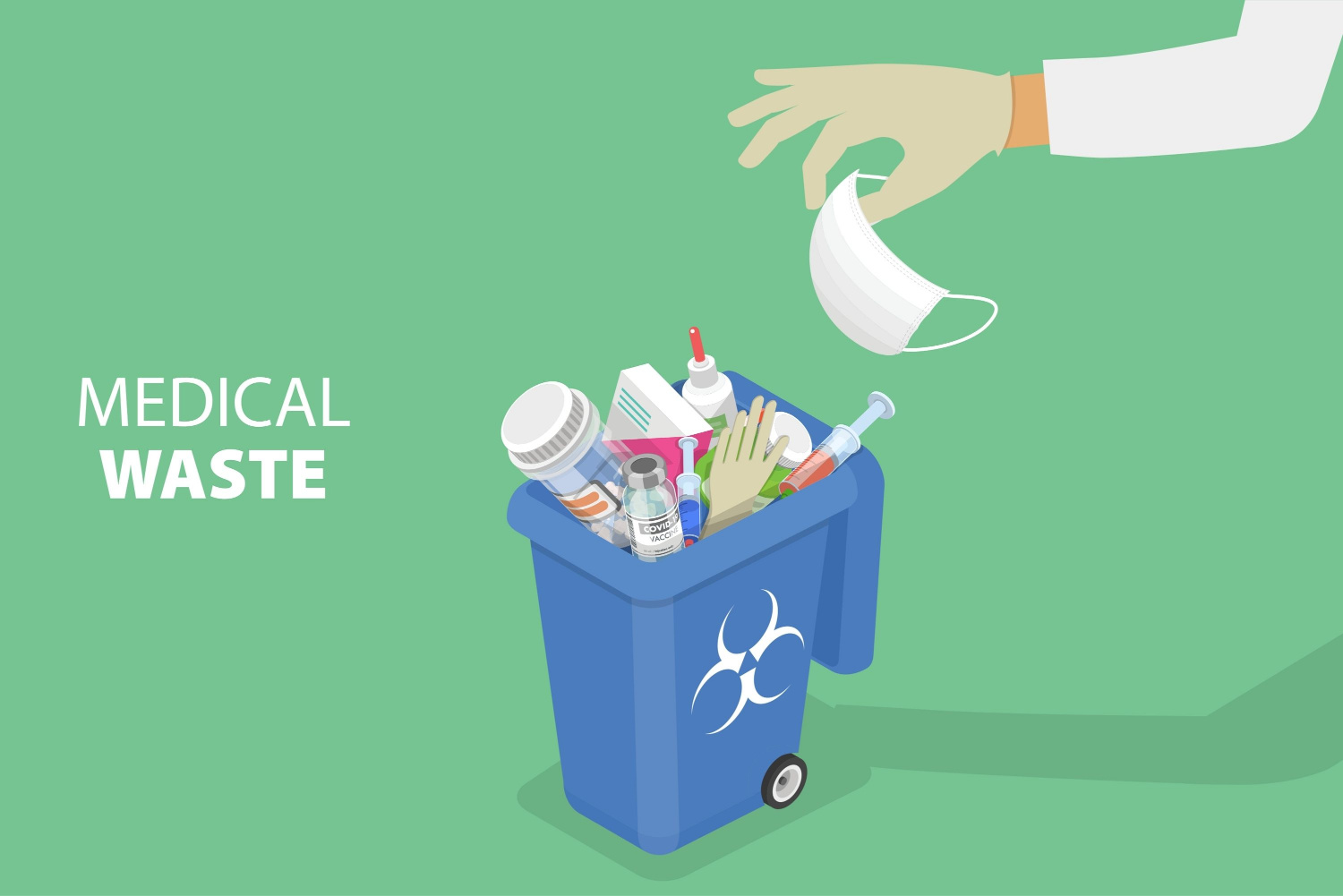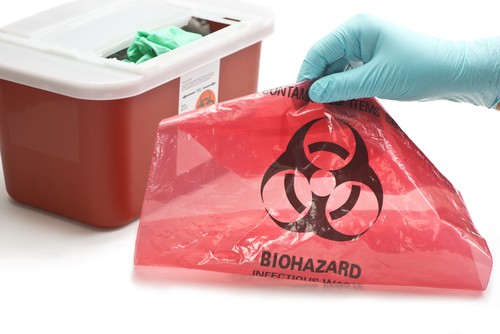Guaranteeing Safe Handling and Disposal of Medical Waste
Guaranteeing risk-free handling and disposal of medical waste is of vital significance in health care settings. Inappropriate monitoring of clinical waste can posture substantial risks to the environment, public health and wellness, and health care workers. In this introduction, we will explore the significance of appropriate medical waste management, the risks connected with improper handling and disposal, as well as the standards and methods that can be applied to ensure its risk-free disposal.
Significance of Appropriate Medical Waste Monitoring
Appropriate medical waste management is of utmost importance in ensuring the safety and security and health of medical care specialists, individuals, and the basic public. Clinical waste refers to any waste generated by medical care centers during the diagnosis, therapy, or immunization of human beings or animals. This waste can present severe wellness dangers otherwise handled and dealt with properly.
One of the key reasons that appropriate medical waste administration is crucial is to avoid the spread of infectious illness. Medical waste, such as made use of needles, infected dressings, and organic products, can lug unsafe virus. Otherwise taken care of and gotten rid of appropriately, these pathogens can be sent to healthcare workers, people, waste trainers, and also the general public, causing the possible outbreak of diseases.
Furthermore, appropriate clinical waste management helps protect the environment - medical waste disposal. Clinical waste has hazardous materials, including chemicals, pharmaceuticals, and radioactive compounds. When not taken care of suitably, these materials can infect dirt, water bodies, and the air, positioning a substantial hazard to ecological communities and public health
Furthermore, efficient medical waste administration makes sure compliance with worldwide criteria and local regulations. Federal governments and governing bodies have actually developed guidelines and methods to guarantee the risk-free handling, storage, transportation, and disposal of clinical waste. Sticking to these policies is important to stay clear of legal consequences and keep the track record and credibility of healthcare centers.
Threats of Improper Handling and Disposal

If medical waste is not properly disposed of,Clients can also be exposed to these infectious diseases. If polluted needles or other sharps are not disposed of in designated puncture-proof containers, they may inadvertently prick clients, leading to potential infections. Additionally, if medical waste is not segregated properly, there is a threat of cross-contamination in between various kinds of waste, additional enhancing the chances of disease transmission.
Incorrect disposal of medical waste can additionally have damaging results on the setting and the public. If medical waste is not dealt with and taken care of properly, it can pollute water sources, dirt, and air, resulting in the spread of pollutants and illness. This can have long-lasting consequences on ecosystems and public wellness.
Guidelines for Safe Handling of Medical Waste
Applying efficient methods for the risk-free handling of medical waste is crucial in ensuring the security of medical care experts, patients, and the public. These guidelines are essential in decreasing the threats connected with the handling and disposal of medical waste, such as infections, injuries, and environmental pollution.
Firstly, healthcare facilities should develop an extensive waste monitoring plan that abides by neighborhood, national, and worldwide regulations. This plan should include clear guidelines on waste segregation, packaging, labeling, storage space, and transportation. It is essential to separate different kinds of waste, such as sharps, infectious materials, drugs, and non-hazardous waste, to stop cross-contamination and promote risk-free disposal.
In addition, health care workers have to receive complete training on correct waste handling methods. They need to be enlightened on the potential risks of medical waste, the ideal use individual safety devices (PPE), and the proper treatments for managing, carrying, and getting rid of different kinds of waste.
Moreover, medical care facilities must routinely keep track of and investigate their waste management methods to make sure compliance with guidelines. This includes conducting routine inspections, reviewing waste handling procedures, and giving responses and training to team member.
Effective Strategies for Waste Disposal
To make certain the secure handling and disposal of medical waste, it is necessary to utilize efficient techniques for waste disposal. Medical waste can present significant risks to public wellness and the atmosphere if not handled and dealt with properly. Healthcare centers and waste administration companies need to execute appropriate approaches to reduce these threats.
It involves dividing various types of medical waste based on their features. Healthcare centers ought to supply clear standards and training to staff members on just how to set apart waste properly.

Furthermore, healthcare facilities should work together with accredited waste monitoring firms to ensure appropriate disposal of clinical waste. These firms have the competence and devices needed to securely dispose and deal with of medical waste in compliance with policies and finest practices.
Training and Education And Learning for Health Care Professionals
Health care experts play an important function in ensuring the secure handling and disposal of clinical waste with detailed training and education and learning. It is crucial for healthcare service providers to have a deep understanding of the potential risks related to medical waste and the proper protocols for its monitoring. By obtaining appropriate training, healthcare experts can lessen the prospective transmission of infectious conditions, stop environmental contamination, and safeguard both themselves and the general public.

Moreover, training programs need to highlight using individual protective devices (PPE) and correct hand health practices when look here managing clinical waste. medical waste disposal. Medical care specialists ought to know just how to correctly get rid of and use of PPE to shield themselves from prospective direct exposure to harmful products. They need to additionally be informed on the relevance of routine handwashing and the proper use of hand sanitizers to minimize the spread of infectious illness
Continuing education and routine updates on clinical waste monitoring methods are essential for health care experts. As guidelines and regulations progress, it is essential to keep doctor notified regarding any kind of adjustments in procedures and ideal practices. This will guarantee that they remain updated and keep a high criterion of safety and security in dealing with and disposing of medical waste.
Conclusion
In conclusion, proper handling and disposal of medical waste is important to guarantee the safety of healthcare professionals, people, and the atmosphere. By adhering to these techniques, we can alleviate the potential threats linked with medical waste.
Clinical waste refers to any type of waste generated by health care facilities during the medical diagnosis, treatment, or booster shot of people or animals. If clinical waste is not segregated effectively, there is a danger of cross-contamination in between different kinds of waste, further raising the possibilities of condition transmission.
It is crucial to divide different kinds of waste, such as sharps, infectious products, pharmaceuticals, and non-hazardous waste, to protect against cross-contamination and promote secure disposal. WasteX Medical Waste Disposal.
To guarantee the secure handling and disposal of medical waste, it is vital to use efficient strategies for waste disposal. Furthermore, medical care facilities need to establish a routine waste collection and transport routine to prevent waste build-up and minimize the danger of mishaps or contamination.